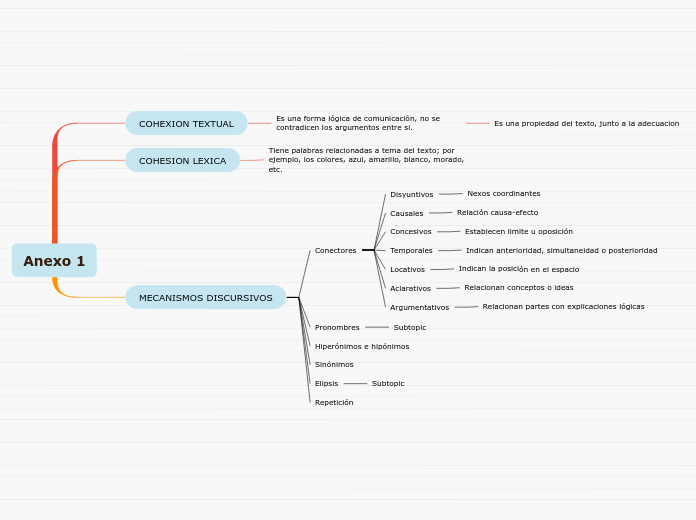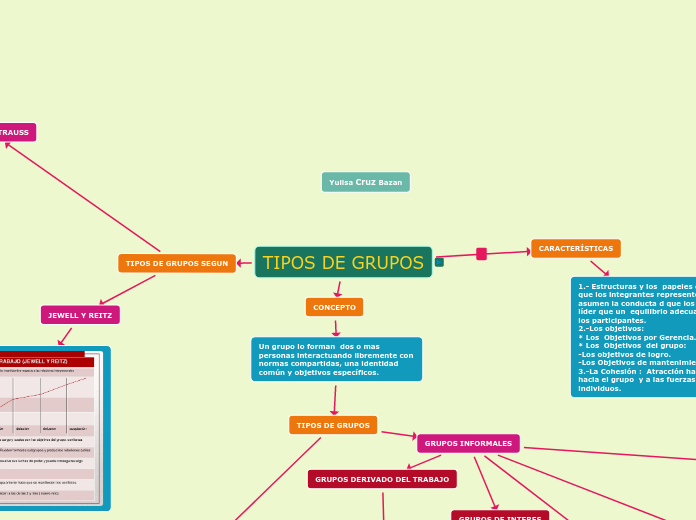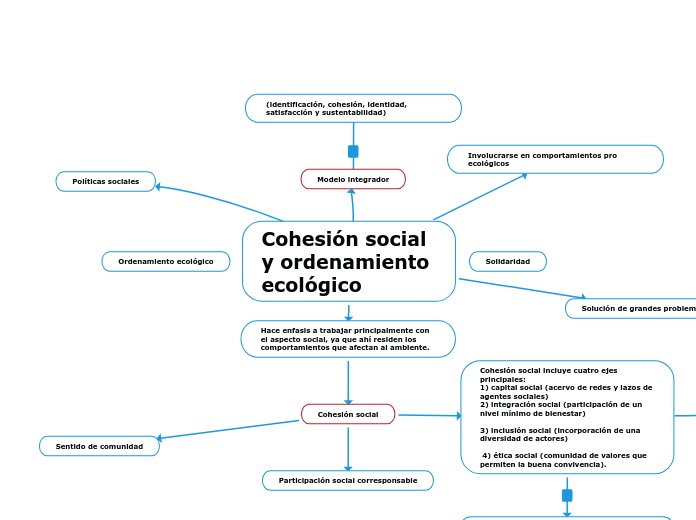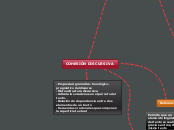Anexo 1
To name your story, you have to think about the overall message and what you want your audience to understand from the story. Also, make it relevant and easy to remember.
MECANISMOS DISCURSIVOS
Repetición
Elipsis
Sinónimos
Hiperónimos e hipónimos
Pronombres
Subtopic
Conectores
Argumentativos
Relacionan partes con explicaciones lógicas
Aclarativos
Relacionan conceptos o ideas
Locativos
Indican la posición en el espacio
Temporales
Indican anterioridad, simultaneidad o posterioridad
Concesivos
Establecen limite u oposición
Causales
Relación causa-efecto
Disyuntivos
Nexos coordinantes
COHESION LEXICA
The middle of the story is where you add layers of complications that will lead to the end. Reveal more about the character's journey. Did their personality go through changes? How did they overcome the challenges? And as you build up the story’s central conflict, make it more personal to that character. Also, from the middle act, you have to lead into the final act.
Tiene palabras relacionadas a tema del texto; por ejemplo, los colores, azul, amarillo, blanco, morado, etc.
Each story has a main character and that character usually needs to solve a problem or challenge. The character's challenge is the one that creates tension throughout the story.
COHEXION TEXTUAL
In the beginning of the story (or the exposition), you will need to introduce the setting and characters. You might also want to introduce the main conflict. This part of the story is important because it gives the reader necessary background information and maybe even a first insight into a character’s personality.
Es una forma lógica de comunicación, no se contradicen los argumentos entre si.
Characters are essential to a good story. Usually, the protagonist(s) is/are the most affected by the plot. Introduce a character by focusing on their actions, interests, and occupation, as the physical appearance doesn't make a difference in most cases.
Es una propiedad del texto, junto a la adecuacion
Type in the name of your character.










